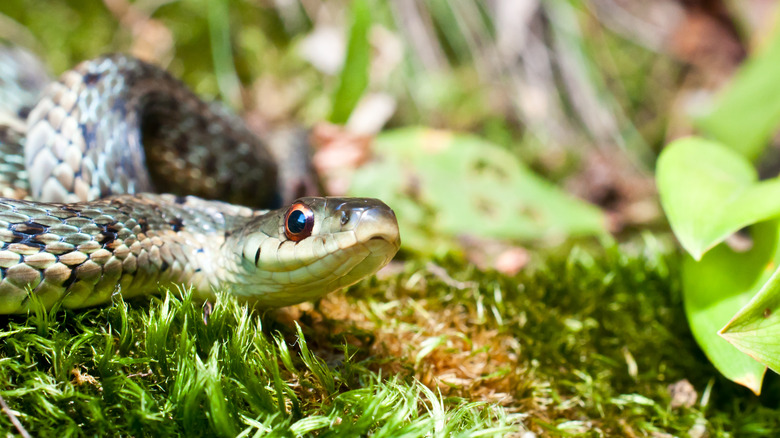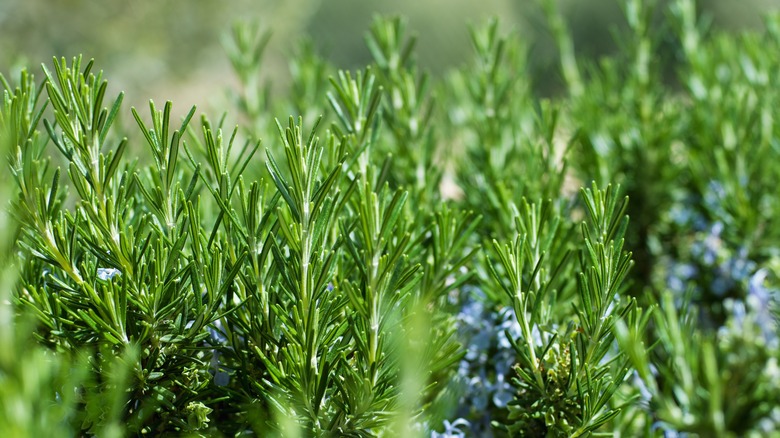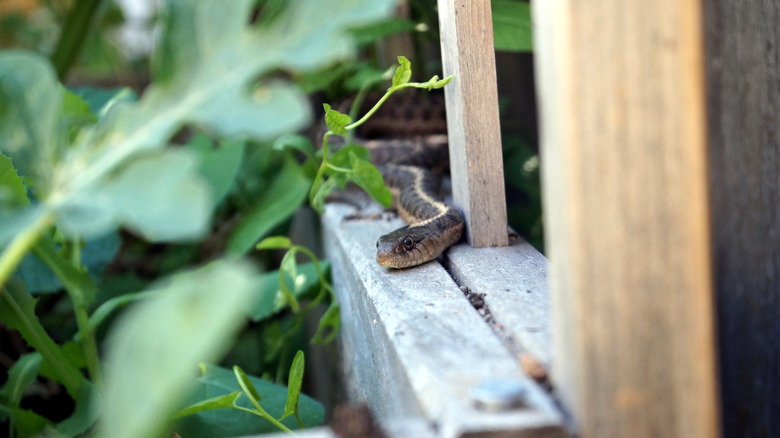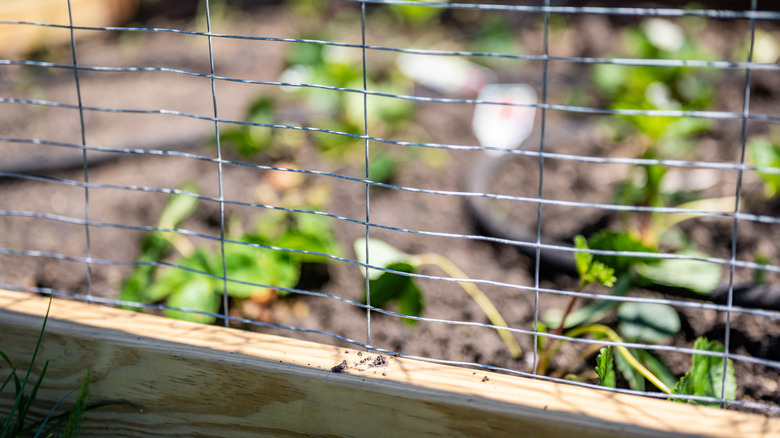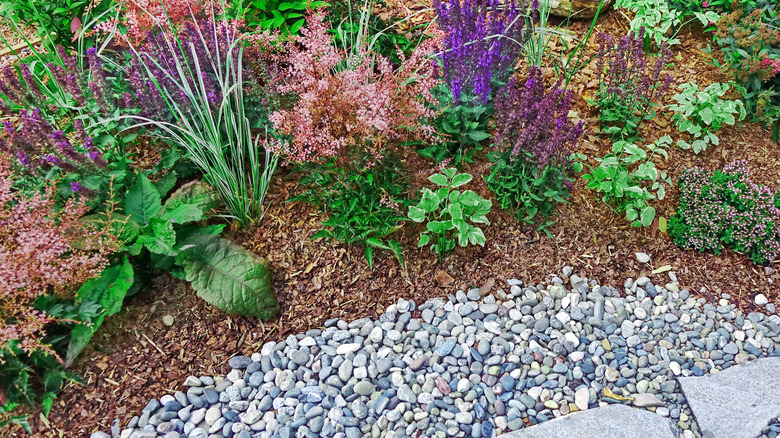Is Rosemary Really The Key To Keeping Snakes At Bay In Your Garden?
Rosemary, a woody, perennial herb native to the Mediterranean region, with its needle-like leaves and distinctive, invigorating fragrance, is renowned for its culinary and medicinal applications, but it also boasts a potential that may surprise many: snake deterrence. This raises an intriguing question: Is rosemary genuinely effective in keeping snakes away from your garden?
Opinions are divided on the matter. Some advocate that a combination of essential oils and rosemary effectively repels snakes, suggesting its concentrated scent is the key deterrent. Others argue that simply planting a barrier of rosemary bushes around a garden is sufficient to keep snakes at bay. Contrarily, other sources assert that rosemary, in any form, does not affect snakes. This discrepancy highlights the need for empirical research to validate or refute the claims about rosemary's snake-repellent properties.
Before diving into the research and details of such a complicated debate, it's helpful to grasp how snakes detect scents and understand that they utilize their tongue, not their noses. The process involves the tongue flicking in and out, gathering air molecules, and transferring them to Jacobson's organ, located on the roof of the mouth. This organ produces a sense of smell 10,000 times our own. As a result, snakes rely on this keen sense of smell to navigate and hunt. You can imagine how the intense aroma of a rosemary essential oil may be overwhelming and disorienting. But is this logic enough to support the claim that rosemary can keep snakes out of the garden?
Research on rosemary and it's effect on snakes
In truth, the scientific research on using rosemary as a snake repellent is limited. Some sources suggest that essential oils, including rosemary, might have some repellent properties against snakes. A 2002 study published in Pest Management Science indicated that certain essential oils like rosemary could cause brown tree snakes to "locomote in a deliberate and directed manner" away from the source of these oils. The researchers found that a mixture containing 10 grams of essential oil per liter of water could repel this specific species of snakes.
Nonetheless, this only proves to deter brown tree snakes, not all snakes. It was also noted that such a repellent is effective only when applied directly to the snake. If sprayed on vegetation, it would not keep snakes away from larger areas like backyards. However, popular articles on the internet suggest otherwise. These articles support the claim that rosemary does, in fact, work.
Here is a breakdown of what they believe: rosemary can deter snakes if you plant it along the edges of your garden, near entry points, and around areas where snakes are likely to hide, such as piles of rocks, logs, or dense shrubbery. Essentially, the goal is to encircle your garden with a dense, fragrant barrier that snakes will hesitate to cross. The pungent scent and spiky rosemary leaves might seem like effective deterrents against snakes; however, a significant issue arises — no scientific evidence supports this claim.
Rosemary may actually attract snakes
While using rosemary as a natural deterrent for snakes in gardens is popular in some circles, expert opinions suggest a more complex reality. According to WY Pest Control, rather than repelling snakes, the dense, low growth typical of rosemary and similar plants might create an appealing environment for them. Snakes are drawn to areas that offer shelter and potential food sources. The thick foliage of rosemary can provide them with cover from predators and extreme temperatures, making these spaces attractive for resting and hunting.
Professionals at Rattlesnake Solutions contribute to this belief, arguing that the characteristics of rosemary and similar plants make them attractive to snakes. They point out that plants that shed many leaves and require frequent watering create ideal conditions for snakes. The accumulation of leaves provides hiding spots, and the moisture attracts snake prey, making such environments perfect for snakes to thrive. Consequently, this source recommends opting for more open, less dense planting options. Choosing plants that allow visibility from above can reduce the area's attractiveness to snakes by eliminating the shelter and humidity they seek.
It is worth noting that the essential oil form is not mentioned and could still have repellent properties against snakes. However, the effectiveness is somewhat limited and context-specific due to the abovementioned Pest Management Science evidence. Again, the same problem arises here — no scientific evidence suggests that rosemary can attract or repel snakes directly. So, what is the middle ground here?
The potential middle ground
There is a middle ground despite the complicated and contrary debate. Implementing strategies combining habitat modification, physical barriers, and natural deterrents is a more effective way to discourage snakes from entering a property. Snakes are attracted to gardens because they offer abundant food sources. By eliminating the prey, the predator, too, will depart. Journalistic and scientific sources, including USA Today for rosemary plants and Taylor and Francis Online for its oil, concur that rosemary effectively repels pests like slugs, beetles, and mosquitoes, all prey for snakes.
Regarding shelter, snakes love brush piles, tall grass, and debris. Regularly mowing your lawn and removing piles of wood, leaves, and other debris can discourage snakes from residing in your garden. You can also install a snake-proof fence. A snake fence should be made of fine mesh or solid material, angled outward at a 30-degree angle, and buried a few inches into the ground to prevent snakes from crawling under it. The fence should be at least 3 feet high to be effective.
Additionally, ensuring that your garden does not have standing water and using well-draining soil are essential steps to discourage snakes, as they are attracted to moist environments. Moreover, placing gravel, sharp rocks, or hardscaping around the garden or along its perimeter can deter snakes from entering, as they dislike moving across sharp or uncomfortable surfaces. This combination of maintaining a dry environment and creating physically uncomfortable barriers for snakes can effectively reduce their presence in your garden.
Final considerations and thoughts
Commercial snake repellents are widely available, often containing naphthalene or sulfur, which aim to deter snakes through their smell. However, these products are mainly ineffective despite their availability and pose environmental and health risks. Rattlesnake Solutions strongly opposes their use, noting instances where snakes were found in, under, or even sleeping on top of bags containing these repellents. They frequently encounter situations where the distinct smell of these products indicates a homeowner's attempt to use snake repellents — a method proven ineffective by the necessity of their services.
Ultimately, all you can do is regularly inspect your garden for signs of snakes or their prey and promptly address those issues to prevent snakes from establishing a presence in your garden. Remember that snakes are an essential part of the ecosystem and are crucial in controlling pest populations. If you encounter one, it's best to leave it alone if it's non-venomous. For venomous snakes, or if you're unsure, consider contacting a professional wildlife removal service to remove and relocate the snake safely.
In conclusion, while rosemary might contribute to an aromatic and pest-resistant garden, relying solely on it — or any singular measure — to deter snakes is insufficient. Effective snake management necessitates a comprehensive strategy beyond the solution of planting rosemary. Thus, when circling back to the question, "Is rosemary really the key to keeping snakes at bay in your garden?", the evidence suggests not and instead highlights the importance of a holistic approach.
